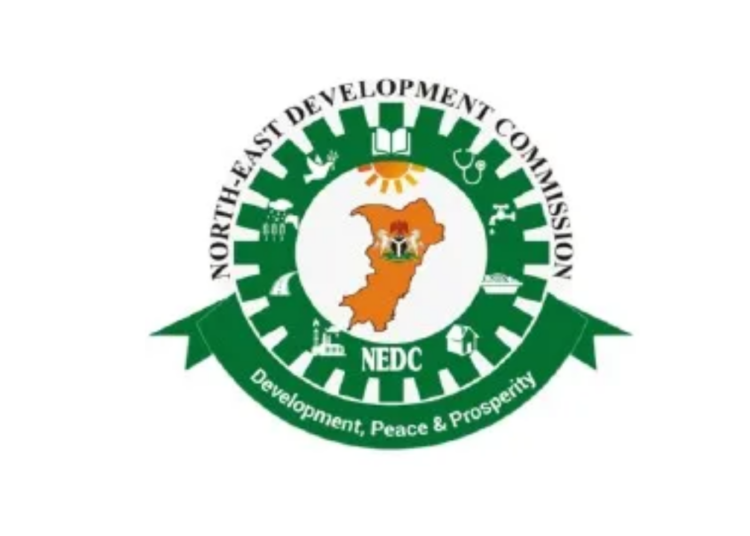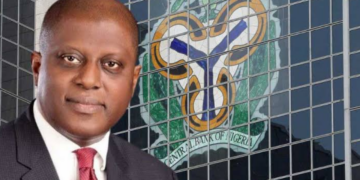The provision of infrastructure can lead to beneficial economic outcomes, while its concrete development impact depends significantly on how infrastructural investment strategies are defined and implemented.
Take the North-East Development Commission (NEDC), for instance. Like its counterpart in the Niger Delta (NDDC), many wonder what impact it is making or whether it has also got enmeshed in a miasma of controversies bothering on corruption.
The sorry state of the geopolitical zone is not in doubt. Plagued by wars, strife, banditry and terrorism in the last seven years, the intervention of the NEDC was expected to be an elixir to reawaken development in the region.
BUT has it lived up to expectations?
There are those who insist it has, while some think it should do more. Proponents believe the NEDC has proven to be different, and also further distinguished itself from other interventionist agencies in the country.
They readily point to the Niger Delta Development Commission (NDDC), an interventionist agency set up in 2000 to see to the development of the oil-rich Niger Delta region and tackle the ecological problems arising from oil production activities but which has generally fallen short of meeting the expectations of the people of the nine mandate states – Abia, Akwa Ibom, Bayelsa, Cross River, Delta, Edo, Imo, Ondo, and Rivers.
NDDC was to accelerate infrastructural development in the Niger Delta region following years of agitation by the indigenes, incensed that despite hosting the crude oil, which provides about 90 per cent of public revenue, was denied the benefits, while the land and water sources were devastated and the farming and fishing livelihoods of the people upturned.
In its 23 years of existence, the agency has been at the centre of many unresolved corruption allegations undercutting its capacity to deliver on its mandate to the people of the Niger Delta region.
In several reports and probes, the NNDC has been described as an aberration, a monumental waste of public funds and a cesspool of corruption. Has the NEDC fared better? Saddled with covering Borno, Adamawa, Bauchi, Taraba, Gombe and Yobe States, it catalysed rapid economic growth of the affected areas.
Established essentially to rebuild infrastructure and institutions destroyed by Boko Haram in North East Nigeria, which has so far lost more than $6.9 billion to Boko Haram terrorism, there has been a consistent drive towards achieving its core mandate in rebuilding.
It has been focussed especially in the area of agriculture, more so as the North East is an agrarian area where farming activities have nearly been grounded by insurgency.
Following its inauguration by President Muhammadu Buhari in 2019 to coordinate all humanitarian interventions by government Ministries, Departments and Agencies (MDAs) based on the Northeast Stabilization and Strategizing Masterplan, a lot can be said about its humble achievements in the elimination and mitigation of various effects caused by terrorism and war in the Northeast.
One of the components of the masterplan is a railroad to connect Borno, Yobe, Adamawa, Gombe, Bauchi and Taraba with the Southern part of the country. This no doubt will open up the zone to export its agricultural and animal product timely. In Gombe State, the NEDC is presently building about 500 houses for middle and low income earners with about 250 in the State capital Gombe at about 95% complete. Mention must also be made of the building of a fully equipped Monecular Laboratory for Corona Virus in Gombe.
The NEDC has already said it requires N31.05 trillion to implement its 10-year masterplan for the insurgency-ravaged region.
NEDC Managing Director, Mallam Mohammed Alkali, has said the amount would enable the commission to execute its projects for the region in four phases.
Consequently, the commission engaged stakeholders and conducted study in 121 local governments in the six states in the zone to identify interventions that would revive activities.
The master plan contains over 500 programmes and schemes that would promote and facilitate the physical and socio-economic development of the zone to be implemented in 10 years (2020-2030).
The first phase, according to him, is recovery and stabilization slated for 2020-2022; renewal, which is second, will cover 2022-2024. The third and fourth phases are expansion (2024-2026) and sustainable growth (2026-2030).
The master plan, which cost of implementation is put at N31.05 trillion (about $80 billion), which sum will substantially come from the private sector, contains 11 pillars. They are: peaceful society, leadership in agriculture, healthy citizens, educated populace, flourishing trade, productive entrepreneurs, purposeful infrastructure, and industrialization.
But while the commission would require over $9.6billion for the development of the North-east region, the commission currently receives three per cent of VAT and Ecological Fund for its activities. A total of N46.1 billion has been allocated to the NEDC in the 2022 budget However, this budgetary provision will not be sufficient to address the multifaceted problems and challenges and is grossly inadequate to develop the area.
Therefore, there is merit in the call by NEDC on the federal government to increase allocation to it from Value Added Tax (VAT) and Ecological Fund. It wants the allocation from these sources increased from three to five per cent.
Happily, a bill, presently, at the House of Representatives, if passed into law, is seeking to create additional funds for the North East Development Commission by expanding its revenue sources, including empowering it to retain 15 per cent of its annual revenue.
Worthy of note is that the Commission has executed not less than 224 developmental projects in 112 local government areas across the six North-East states under the Rapid Response Intervention, as part of the comprehensive master plan to holistically rebuild the region.
Hitherto, the NEDC, has earmarked N6 billion to replenish the 10 percent annual grants on scholarship for students in the region. The funds would also be used for skills and acquisition training and provision of starter packs to 5,000 ICT skills, 5,000 women and youths on entrepreneurship, and 2,000 other vocational skills in each of the 1,028 wards in the North East.
Another success story of North-East Development Commission (NEDC) is the launching of Education Endowment Fund (EEF) NEDC-EEF. This is apt and timely because experts are of the opinion that part of the youth restiveness being experienced in the region has its origin in lack of quality education; and the commission is investing heavily in this regard.
There are those who advice that on such onerous task, the commission must avoid all forms of political pressure in carrying out its duties and further affirm its important role as a unique agency of the federal government that distinguishes itself outstandingly in public leadership by making lots of iconic footprints in public space.
Analysts are also of the opinion that stakeholders should be encouraged to invest in the region as it is witnessing improved security and gradually returning to sustainable peace and stability.
Full participation by all, they contend, would be a game changer that would see to effective transparency, collaboration, and successful actualization of the humanitarian mandate to bring relief to citizens in NEDC states. Without these, they add, the peace in the zone would definitely be short-lived.
It would be stating the obvious to say that the crisis in North-East Nigeria that came with its attendant loss of lives, destruction of properties and displacement of thousands of people has been greatly managed and subdued, leaving its after-effects less visible. This is as a result of, against all odds, the reconstruction, and progressive, decision implementation by the NEDC in coordinating, harmonizing, and overseeing the success of many intervention and initiative programmes for the North Eastern states.
There is indeed so far sufficient indication that the infrastructural and economic development of North-East Nigeria is well on course. The commission appears to have demonstrated that it is as an agency which has overpowered the Nigeria’s negative regression and set itself apart from the culture of non-performing federal agencies.
Therefore, unless stakeholders support and invest in all elements of the infrastructure components of the NEDC, development would be slow and retarded and the north-east would miss the bus again and lose out in the race for economic growth and competitiveness. This is the hard truth and the bitter reality which should hopefully spur all those in the region.
– Musa-Gombe a media practitioner wrote from Abuja





